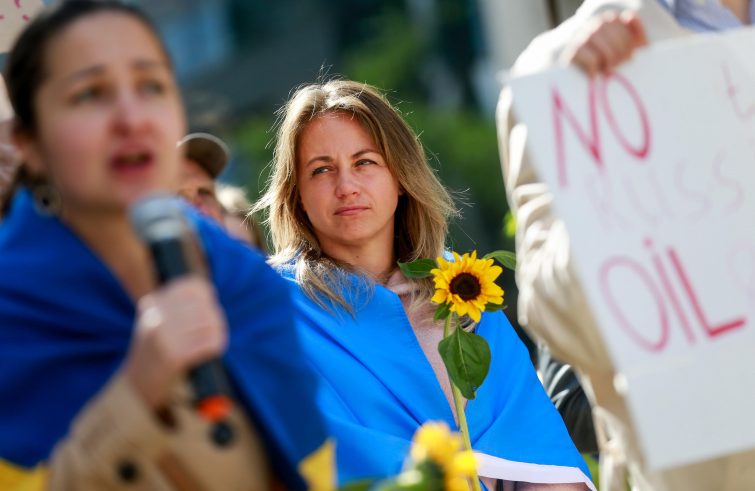
Msgr. Stanisław Gądecki, president of the Polish bishops, returned from Ukraine a few days ago. Interviewed by SIR, the prelate underlined that the visit – from May 17 to 20 – has strengthened his “hopes for the country’s rebirth.” He was accompanied in his visit to Ukraine by the Primate of Poland, Msgr. Wojciech Polak, and by the Archbishop of Lublin, Msgr. Stanisław Budzik. Msgr. Gądecki noted that “Ukrainians today are fighting to defend their land and European values.”
Speaking to SIR, the prelate made a point of clarifying the meaning of those words in the context of a war of unimaginable atrocity and violence.
What are the values that Ukrainians are fighting for today?
It occasionally happens that when a country fails to achieve internal cohesion, it comes together only when it is attacked from outside. This has happened in Ukraine. All the people, regardless of their spoken language – Russian or Ukrainian – now feel that they are all Ukrainians.
The residents of Ukraine are fighting first and foremost for their homeland, that is, the territory on which they, their families, and their fellow nationals live.
They enjoyed the democratisation process of the past thirty years and are now defending the democratic state system from the aggression of the Russian Federation, which appears to be not very fond of Western democracy. The Ukrainians claim that a main objective of their country’s invasion was to prevent the democratisation process – that resulted in swift economic progress and development – from ‘spreading’ to Russia, where the poverty rate is much higher. This in my opinion is the real reason for the war. Moreover, the Ukrainians are defending their own lives and those of their families. That’s why they convinced their mothers, wives, and children, to seek a safe haven abroad. During my visit, I learned that civilians kneeled at the coffins of militants who had fallen in the clashes.
Other than allegedly defending the Russian-speaking inhabitants of the Donbas, and the annexation of a Russian-regarded Crimea, what do you think are the real reasons for this war?
In the course of my visit, I noted a paradoxical situation:
on the one hand, the President of the Russian Federation says that Ukrainians are the brothers of Russian people and a large part of the population in Kyiv was supposed to bear witness to that idea of brotherhood; on the other
those who were in fact attacked the hardest were the Russian-speaking Ukrainians,
those living in the territories of East Ukraine, treated as the most vicious enemies.
Patriarch Kirill of the Moscow Orthodox Church backs the government’s initiatives. What is your understanding of his position?
In Russia there is no distinction between the political and religious realms. Pope Francis has spoken with Patriarch Kirill on several occasions, inviting him to reconsider his position.
I learned that since the outbreak of war in Ukraine, the Orthodox Patriarchate of Moscow has lost about 20 per cent of its faithful to the Ukrainian Orthodox Church – which opposes the Russian invasion.
You wrote to Patriarch Kirill shortly after the outbreak of the war. Did you receive a reply?
I wrote two letters to Patriarch Kirill, but only received a reply to the first one. Metropolitan Hilarion, president of the Department for External Relations of the Moscow Patriarchate, wrote me back. Firstly, he highlighted the inseparable bond of faith and blood that exists between Russia and Ukraine. In the second part of the letter, however, the Polish Bishops were advised to use their influence on the Polish political world to prevent the latter from criticising Russia, including its actions.
The value of forgiveness is a core Christian value. In your opinion, what are the prospects of Ukrainian-Russian reconciliation?
As things stand today, I think that reconciliation between the warring parties is unlikely in the short term.
The Ukrainians are calling for an admission of guilt by the Russians. Only then could reconciliation – and possibly even forgiveness – take place. But I think this will be possible in about fifty years’ time.
Too much blood has been shed.
In fact, at the moment, even the Byzantine Rite Catholic Church does not seem favourably disposed towards a swift reconciliation.









